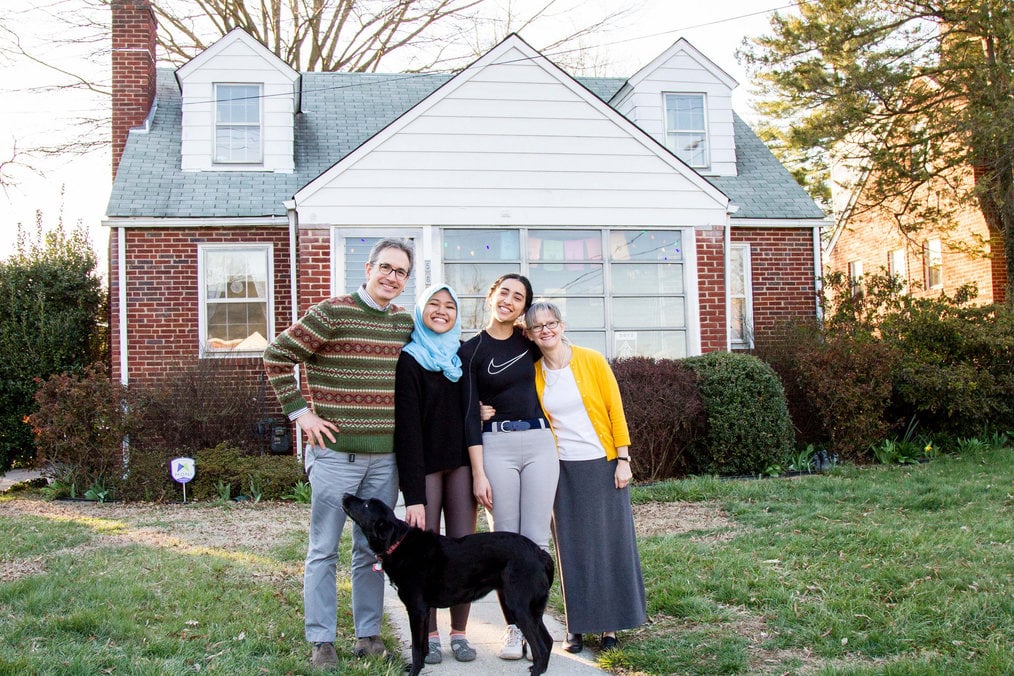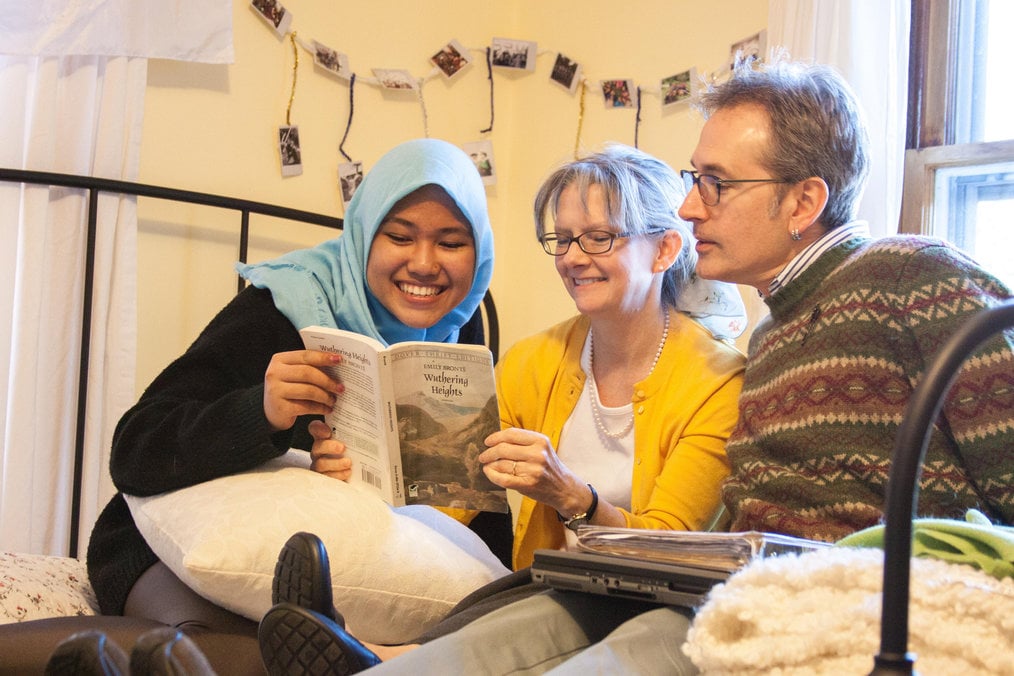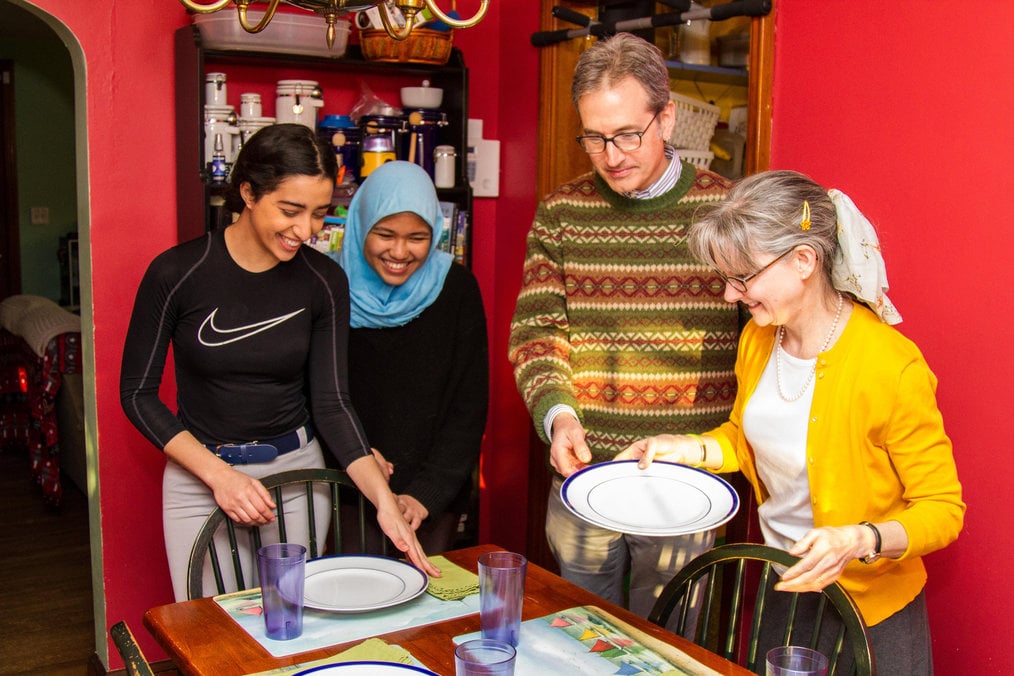How to Talk to Your Parents About Studying Abroad Right Now

2020 has been a maelstrom of unpredictability, to put it mildly. If you’re a university student who’s also had your highly-anticipated study abroad plans upended and amended multiple times, it can also feel like an exercise in an existential laugh track to even contemplate moving forward with making concrete plans to study abroad, let alone thinking about how to break the news to your parents that you are indeed advancing with flying thousands of miles away for an extended period of time to study and live in another country.
How on earth do you break this news to your parents? How do you even begin this conversation about studying abroad right now? What if I told you that you might already possess the key to discussing it with them by using the very thing that throttled your plans in the first place: your experience navigating the uncertainty of the pandemic.
If you’re interested in guidance on how to broach this conversation with your loved ones in a positive and constructive manner, keep reading. You’ll discover how these discussions can empower you rather than engulf you, and maybe leave all parties involved better equipped for navigating the study abroad experience than they would have been if the pandemic had never occurred.
1. Embrace & Discuss the Uncertainty

The first step to approaching this conversation with your parents is deciding how you are going to view uncertainty. The good news is that you’re not dealing with a completely foreign concept: uncertainty is as much a part of the fabric of life as taxes, breathing, love, and sunshine are. It’s going to be there whether you like it or not. The only thing you can control regarding uncertainty is your choice on how you navigate it.
When you’re explaining your plans amidst COVID’s uncertainties to your parents, a good place to open this conversation is about how uncertainty is already woven into the fabric of our daily existences. There’s always some degree of risk involved with anything we undertake in life.
Contextualize this by bringing up how studying abroad itself is already an exercise in navigating the unknown. Think about it: you’re making your way through a new country, living in a different culture, and at times, immersing yourself in a different primary language spoken around you. So much of your experience is determined by your willingness to take risks during your time abroad; the need to be courageous doesn’t change just because a pandemic has been thrown into the mix.
If you word it wisely, you can even frame the uncertainty of the pandemic as a positive to your parents during your discussions. Ask your parents to think about things this way: what else have the past 6+ months been other than a practice run in navigating the unknown? When you’re abroad, you’re guaranteed to encounter some type of similarly rapidly developing situation where you have to think on your feet in ways you’d never had to previously.
2. Do Your Homework

There is a caveat to this paradigm of embracing uncertainty: you must couple this attitude with the necessary practical preparations you can undertake for your trip where possible.
This means getting your documents in order; reaching out to students who’ve (ideally) recently gone through your particular program for advice; and scouring websites and articles like Go Overseas for country-specific, pandemic-focused, and perennial guidance on all aspects of studying abroad.
During COVID, you’ll also want to keep abreast of the most recent pandemic developments in your destination country, so you can adjust your actions to their developing pandemic regulations.
3. Maintain Contact with Your University/Study Abroad Program
Next, it’s important to keep an open line of communication with your university or program’s study abroad personnel. They’re going to be your best resources for understanding your program’s most recent pandemic policies.
The quality of your communications with your program points of contact can make or break your parents’ (and your) comfort levels during these times of heightened uncertainties. Knowing exactly who and what office they can contact in the event of an emergency can go a long way in assuaging any extra worries they’re experiencing about your health and safety because of the pandemic.
It’s best to establish this relationship sooner rather than later; if possible, you can try to coordinate a virtual or in-person meeting between your parents and the program coordinator/point of contact to establish a further sense of personalization for your loved ones.
4. Set Up Boundaries for Support & Success

Now that you’ve hopefully begun and continued to engage in these discussions with your parents, you’re probably wondering something every adventure-seeking student ponders at some point: how do you assert yourself in this process without alienating yourself from the adults in your life?
There are three key facets to nurturing this dynamic: 1) trust; 2) humility; and 3) giving each other the benefit of the doubt.
If you approach establishing boundaries with your parents from a baseline of mutual respect and belief in each other’s good intentions, any mistakes you make as you go along won’t nearly possess as much gravitas as they seem to, in the moment they’re made.
If you’re still struggling to talk effectively with one another, even after taking a few moments to collect yourselves during disagreements, take one more moment away, and mindfully reflect on your parents’ positive attributes, interests, and natural gifts and talents they possess.
Much like how connecting them with your study abroad personnel can help to mitigate their extra pandemic-infused worries, involving them in some of the planning aspects of your trip can affirm and strengthen the “we’re teammates” bond you’re all cultivating, as well as give you unexpected insights and wisdom you might never have known you needed.
Before you leave, it’s also a good idea to sit down for (at least) one conversation to hammer out concrete expectations and mutually agreed-upon boundaries regarding communication and financial support (or lack thereof) while you’re away. You obviously don’t want to be glued to WhatsApp, Facetime, or Zoom with your family the entire time, but working out a regular day and/or time to talk to them can establish a sense of normalcy in your novelty, and might serve as an unexpected bulwark of regularity you didn’t know you needed until you needed it, too.
Finally, in these boundary discussions with your parents, some of the most vital conversations you need to have are the ones surrounding boundaries with finances. Having these conversations beforehand is that much more vital during the reality of risks incurred because of the pandemic, and doing so beforehand falls into the “I did the best I could with the knowledge I had” category, which can serve as a small source of consolation and groundedness amidst any stresses that occur if an emergency arises.
5. Enjoy—and Accept—the Reality of Your Time Away

At the end of the day, you and your parents are just going to have to accept the possibility that things can, and will, go wrong. In fact, some things are guaranteed to go wrong. (Pretty much all of 2020, anyone?)
The reality is, the pandemic in 2020 upended our world as we know it, both globally and personally. It’s been deadly, inconvenient, grief-inducing, bankrupting, and just plain horrible to deal with overall. COVID-19 has upended so many plans -- in your case, your original study abroad plans -- probably more than once.
But, look: you’re here. You’re reading this article. You’ve made it so far, and your parents have, too. Don’t give up on your goal of studying abroad, and let the lessons in uncertainty you’ve been learning from this pandemic force you to move forward with your plans to study abroad this year or at some point in the future. You can handle the tough conversations with your parents about studying abroad right now; even bringing it up is further proof that you’re ready for that next unforgettable adventure.
